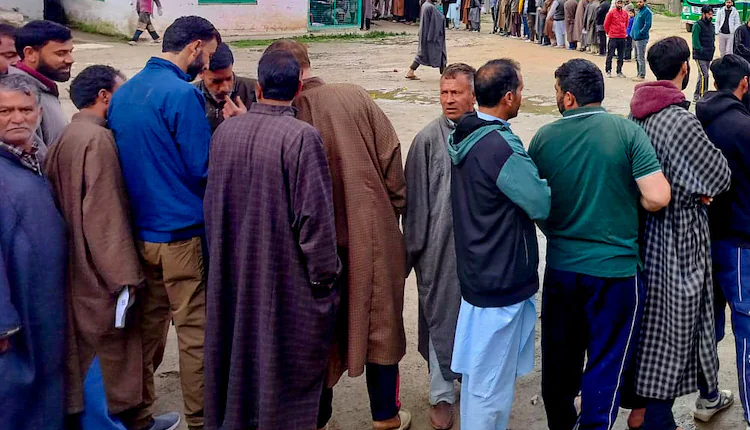Jammu and Kashmir: As Jammu and Kashmir braces for the upcoming assembly election results on October 8, the possibility of a hung assembly has ignited a fierce political debate. Central to this controversy is the Lieutenant Governor Manoj Sinha’s proposal to nominate five members to the newly formed Assembly, a move that has drawn sharp criticism from major political parties, including the Congress and the National Conference.
Potential Kingmakers in a Hung Assembly
Exit polls indicate a likely hung assembly in the forthcoming elections, where no single party is expected to secure a clear majority. In such a scenario, the five members nominated by the Lieutenant Governor could emerge as pivotal figures, effectively acting as kingmakers in the formation of the new government. This strategic nomination has sparked intense debate over its fairness and implications for democratic processes in the region.
Opposition Leaders Condemn the Nomination Proposal
Both the Congress and the National Conference have openly opposed the Lieutenant Governor’s proposal. They argue that nominating members without a direct electoral mandate undermines the democratic ethos of the Assembly. According to ABP sources, the five nominees include a woman, a refugee from Pakistan-occupied Kashmir (PoK), two Kashmiri migrants, and another individual, with five to six names shortlisted for each category.
PDP leader Iqbal Trambu has voiced strong opposition, suggesting that the arrangement is designed to favor the ruling party and allow the Bharatiya Janata Party (BJP) to influence the government formation indirectly. “This arrangement seems aimed at helping the ruling party and appears that the BJP wants to enter the formation of the J&K government through the backdoor,” Trambu stated.
National Conference spokesperson Imran Dar echoed similar sentiments, highlighting the potential weakening of the government. “The inclusion of Kashmiri migrants and PoK migrants is presented as addressing their unique issues, but in reality, it will dilute the strength of the new government,” Dar remarked.
Congress national general secretary Sunil Sharma emphasized the importance of an elected mandate, asserting, “The process of nomination of members should be left to the elected government which has the mandate. This undermines the democratic process and the will of the people.”
Judicial Scrutiny and Legal Challenges
The Calcutta High Court has also weighed in on the matter, expressing dissatisfaction with the police’s handling of related cases. Justice Tirthankar Ghose has ordered the transfer of the Kultali rape and murder case to a POCSO (Protection of Children from Sexual Offences) court, questioning why the police did not register the case under the POCSO Act despite indications of sexual abuse in the Surathal report.
During an urgent hearing presided over by Chief Justice T S Sivagnam, the state argued that it lacks the authority to mandate autopsies at central hospitals. Major Vijay from the Command Hospital informed the court that their facility does not house forensic experts, prompting the judge to endorse the use of AIIMS professionals for the autopsy. Additionally, the court ordered that the post-mortem be conducted in the presence of a Baruipur judicial magistrate to ensure transparency.
Government’s Stance and Public Sentiment
In response to the mounting pressure, Chief Minister Siddaramaiah has remained steadfast, despite facing allegations of corruption and mishandling of the MUDA land allotment case. Addressing the controversy, Siddaramaiah stated, “If one or two incidents happen in between, there is a scream in Bengal. It should happen, it’s right, but when it happens in other places, they silence the issue. There is no opposition.”
He further criticized the spread of fake videos and media trials, urging for strict action against perpetrators and the proper registration of cases under the POCSO Act. “Crime is crime. Strict action will be taken against whoever commits a crime. I want the police to register the incident as a POCSO case and the guilty should be punished within three months,” Siddaramaiah asserted.
Political Implications and Future Prospects
The nomination of five members by the Lieutenant Governor has added a complex layer to Karnataka’s political dynamics, with significant implications for the formation of the new government. As the election results approach, the political landscape remains highly charged, with opposition parties rallying for early mid-term elections and demanding accountability from the current administration.
The coming days will be crucial in determining whether Chief Minister Siddaramaiah will retain his position or if the opposition’s demands will lead to his resignation. The role of the nominated members in a potentially hung assembly will be closely watched, as they could significantly influence the balance of power and the future governance of Jammu and Kashmir.



Comments are closed.